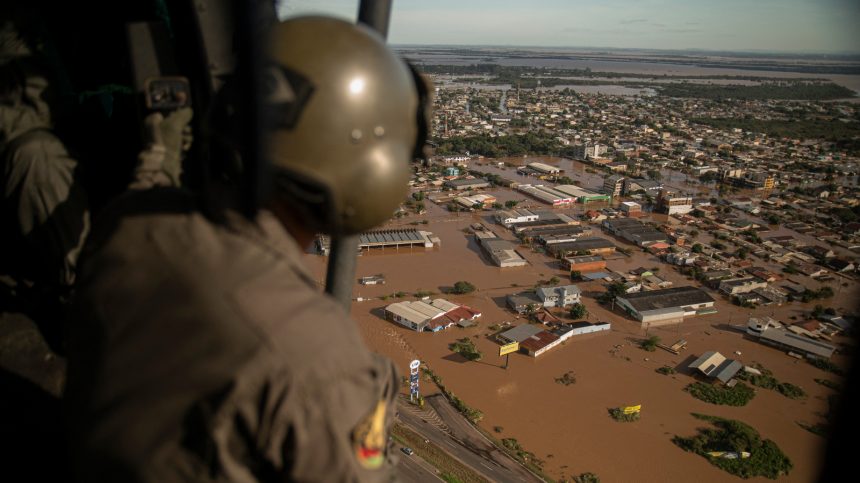This story was originally published by Yale Environment 360 and is reproduced here as part of the Climate Desk collaboration.
When Lucas George Wendt arrived in Lajeado in late May, he was met with a scene of devastation. Just days before his arrival, the entire town had been submerged in water due to historic flooding in Brazil’s Rio Grande do Sul state. Wendt, who now lives in Porto Alegre and works at the University of Taquari Valley (Univates) while studying for his master’s degree, returned to his hometown to check on his family and friends and provide assistance.
The flooding, brought on by climate change, displaced over 650,000 people, resulted in 173 deaths, and left 806 injured. Upon his arrival, 38 people were still missing. Wendt observed the city’s recovery efforts, with backhoes clearing mud-clogged roads, city workers cleaning sidewalks, and volunteers organizing donations of essential supplies.
Last September, Wendt had learned about a Univates mapping project led by researcher Sofia Royer Moraes that aimed to use citizen science to map floodwaters in the Taquari-Antas River Basin. These efforts helped predict future flooding events and guide residents on rebuilding safer homes. Inspired by the project, Wendt decided to contribute by collecting data points for the Citizen Map.
As Wendt documented the aftermath of the flooding through photos, he realized the potential impact of such citizen-led initiatives in creating awareness and preparedness for future climate-related disasters. The Citizen Map, which has evolved to include more than 600 data points, now plays a crucial role in informing urban planning, disaster recovery, and resource allocation in the region.
The severity of the recent floods in southern Brazil has been linked to human-induced climate change. Researchers have identified a significant increase in precipitation during extreme weather events in recent years, making it crucial to leverage data-driven solutions like the Citizen Map for better disaster management and mitigation efforts.
Moraes and her team are now working on expanding the Citizen Map to cover the entire state of Rio Grande do Sul, with the goal of educating and engaging the public in climate adaptation strategies. The project’s success hinges on collaboration between researchers, citizens, and local authorities to address the challenges posed by climate change and ensure community resilience in the face of future disasters.





